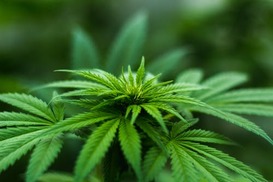Chinese Herbal Medicine
Why Asian Herbal Medicine?The earth has over 250,000 varieties of living botanical plants, herbs, fungi, trees and flowers. Of these 250,000, approximately only 1 percent has yielded substances that create an astonishing 25 percent of the prescriptions dispensed by pharmacies in the United States. Another 13 percent comes from microorganisms and 3 percent more from animals, for a total of over 40 percent that are natural organism-derived. As noted Harvard biologist E.O. Wilson states: “We better listen up, few are aware of how much we already depend on wild organisms for medicine. Even the National Institute of Health, has begun working closely with herbal healers in many countries to identify new drugs, and drug giant Bristol-Meyers Squibb has made deals with native healers in Asia to look for native plants.
The continued success of Chinese herbal medicine is based on approximately 5000 years of empirical and recorded evidence on the use of various herbs and organic substances for medicinal healing. Chinese herbal medicine together with Acupuncture forms the comprehensive health care system of Asian Medicine. When disease occurs, specific herbs are selected and combined based on the patients individual disease presentation, and a diagnosis of the root cause of the symptoms. These herbs have both medicinal and energetic affects on the body promoting healing in one or more systems of the body which encourages and supports the bodies ability to heal itself. |
Are Chinese Herbs Safe?In the hands of a well-trained herbal practitioner, Chinese herbs are effective and safe. Careful attention to dosage and combination of herbs, as well as any known drug-herb interactions, are covered in comprehensive Chinese herbal medical programs. Examination and certification in Chinese Herbology are regulated by the National Certification Commission on Acupuncture and Oriental medicine (NCCAOM). In addition, the Chinese herbal profession is working with the FDA to ensure the quality and safety of Chinese herbs imported into this country.
Herbs have a balancing or regulating effect on the body and are usually more gentle than pharmaceutical drugs. Side effects from herbs are possible but are usually minor. The most common problem is gastrointestinal upset, gas and bloating due to slight difficulty digesting the herb material. If this or any other problem occurs, discuss it with your practitioner so he/she may adjust your formula. Herb-drug interactions are rare. In order to allow your health care providers to treat you effectively and work in partnership, you should inform your Western medical physician that you are taking Chinese herbs just as you should inform your herbal practitioner of any prescription medicines you are taking. |
How Chinese herbal medicine uses?Chinese herbal medicine is a comprehensive form of medicine that can effectively address a wide variety of conditions. It has an extensive clinical and empirical history of treating both acute and chronic medical conditions. It excels in treating conditions that western medicine has difficulty in treating as well as conditions that do not have a western medical diagnosis. Chinese herbal medicine may be used to treat people of all ages from infants to the elderly.
Listed below are some of the many conditions that may be treated through Chinese herbal medicine.
|


